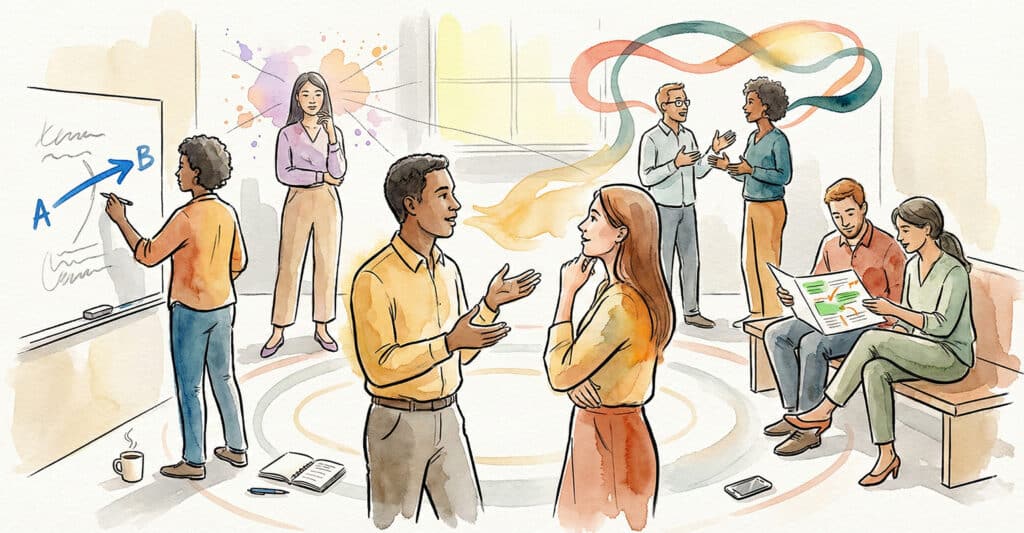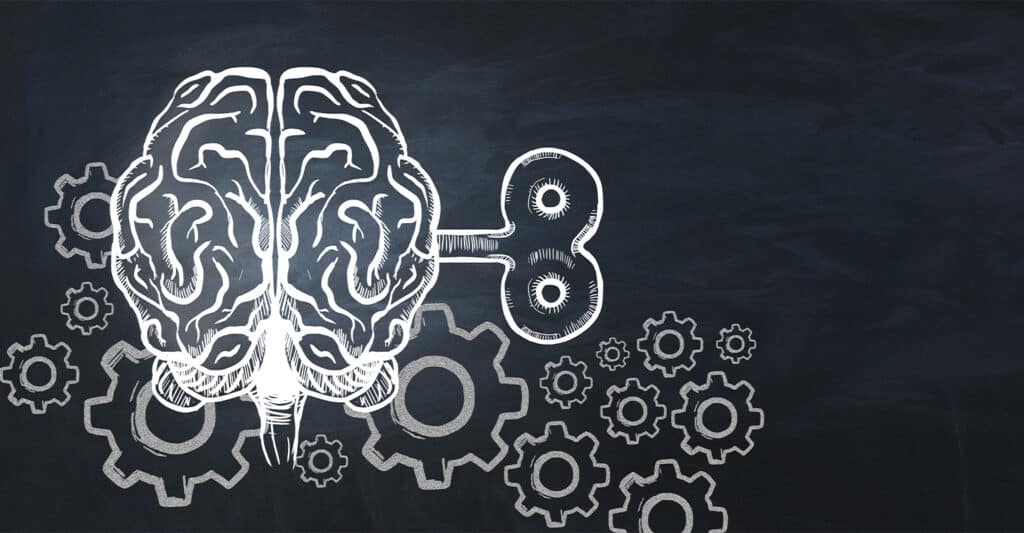Every big success starts with high-performing teams. Whether it’s your favorite soccer team winning a game or a group project earning an A+, teamwork makes it happen. Great teams communicate, trust each other, and work toward clear goals. They solve problems together, celebrate victories, and never give up, even when things get tough.
Think about a team you’ve been part of—maybe in sports, school, or a game. What made it work? Was it how you helped each other or how everyone played their part? In this post, you’ll learn simple tips to build an amazing team. These steps will help you achieve big goals and create something incredible together. Ready to unlock the secrets of teamwork? Let’s get started!
The Foundation of a Winning Team: Trust

Trust is like glue—it holds a team together and keeps it strong. Without trust, team members feel unsure and hesitant, making it hard to work well together. But when trust is present, teams can focus on their goals and achieve great things. Building trust takes effort, but it’s worth it.
Be Honest
Honesty is the foundation of trust. Always tell the truth, even when it’s uncomfortable. For example, if you make a mistake, admit it and try to fix it. This shows you care about the team and take responsibility for your actions.
Follow Through
Reliability builds trust. When you say you’ll do something, make sure you follow through. For instance, if you promise to finish your part of a project by Friday, stick to it. Being dependable shows that others can count on you.
Listen Well
Listening is a simple way to show respect and build trust. Pay full attention when teammates share ideas or concerns. Avoid interrupting, and respond thoughtfully. Listening helps everyone feel valued and makes problem-solving easier.
Imagine a soccer team where the players don’t trust their goalie. They’d feel nervous every time the ball comes near the goal, and chaos would follow. But when they trust the goalie, the whole team plays better. Trust lets everyone focus on their role and the team’s goals instead of worrying about each other. It’s the key to teamwork success!
Clear Communication: Say What You Mean
Good teams talk to each other clearly and respectfully. Clear communication makes it easier to share ideas, solve problems, and avoid confusion. When everyone understands each other, the team can work better together and achieve goals faster.
Here are a few ways to improve communication:
- Use Simple Words: When you explain something, use words that everyone understands. Complicated language can confuse people, so keep it simple. For example, instead of saying, “Let’s strategize,” you can say, “Let’s make a plan.”
- Ask Questions: If you’re unsure about what someone means, don’t guess. Ask questions to get a clear answer. For example, “Can you explain what you mean by that?” Asking shows you care about understanding.
- Give Feedback: Let your teammates know what they’re doing well and how they can improve. Feedback helps everyone get better. For example, instead of saying, “Do better,” be specific: “You’re great at teamwork—next time, try passing the ball faster.”
Imagine you’re on a basketball team, and someone isn’t clear about what they need. If they say, “Fix your game,” you might not know what to do. But if they say, “Focus on shooting from closer to the basket,” you’ll know exactly how to improve.
Clear communication helps teams work smoothly and solve problems quickly. When you say what you mean, everyone stays on the same page!
Shared Goals: Aim for the Same Target

Teams work best when everyone is focused on the same goal. Shared goals give the team a clear purpose and help everyone know what they’re working toward. Without shared goals, people might pull in different directions, like trying to win different games at the same time—it just doesn’t work!
Here’s how to set shared goals that help your team succeed:
- Make Goals Clear: Write down the team’s goal so everyone understands it. For example, “Finish our science project by Friday” is clearer than saying, “Let’s get this done soon.” Clear goals keep everyone on track.
- Break Big Goals Into Small Steps: Big goals can feel overwhelming, but breaking them into smaller tasks makes them manageable. For instance, instead of “Finish the project,” break it into smaller parts like researching, building, and testing.
- Celebrate Wins: Achieving even small steps is a big deal! Celebrate progress to keep the team excited and motivated. A high-five or a quick cheer can make everyone feel good.
Think about putting together a puzzle. If everyone works on the same picture, the puzzle comes together quickly. But if one person is building a castle and another is making a spaceship, the pieces won’t fit. The same goes for a team—shared goals help everyone work in harmony, making teamwork fun and successful!
Roles and Responsibilities: Everyone Has a Job
A high-performing team works best when everyone knows their role. Clear roles tell each person exactly what they’re responsible for, which avoids confusion and helps the team stay organized. When people know their tasks, they feel more confident and can focus on doing their best.
Here’s how to define roles for your team:
- Identify Strengths: Think about what each team member is good at and let them focus on those strengths. For example, if someone loves art, they could design posters for a school project.
- Assign Tasks: Give everyone a specific job that matches their strengths. For instance, one person could gather information, another could organize it, and a third could present the findings. This ensures nothing gets forgotten.
- Rotate Roles (Sometimes): Switching roles now and then helps everyone learn new skills. For example, if someone usually takes notes, let them try leading the group next time.
Imagine you’re in a group project. If no one knows who’s doing what, everyone might end up doing the same task—or worse, nothing gets done. But when one person leads, another takes notes, and a third presents, the work becomes much easier.
Clear roles make teamwork smoother and more enjoyable. When everyone knows their job, the team can achieve great things together!
Problem-Solving: Turn Challenges Into Opportunities
Every team faces problems, whether it’s a last-minute change or something not working as planned. What makes a team great isn’t avoiding problems—it’s solving them together. Problem-solving helps a team grow stronger and work better as a group.
Here’s how to handle problems like a pro:
- Stay Calm: Getting upset or panicking won’t fix anything. Take a deep breath, calm your mind, and focus on finding a solution. A calm team can think more clearly.
- Brainstorm Ideas: Write down every idea that comes to mind, even the crazy ones. Sometimes the best solutions start as wild ideas. By brainstorming as a group, you’ll discover creative ways to solve the problem.
- Choose the Best Solution: Once you have a list of ideas, pick the one that works best for the situation. Make sure the whole team agrees on the choice.
Think about a science experiment. If your first test doesn’t work, you don’t give up. Instead, you look at what went wrong, come up with new ideas, and try again. Teams that solve problems together become closer because they learn to trust each other and work as one.
Problem-solving isn’t just about fixing issues—it’s about growing stronger and proving that, together, your team can handle anything!
Positivity: The Secret Sauce

A positive attitude can change everything for a team. Happy teams work harder, solve problems faster, and stay strong through challenges. Positivity keeps everyone motivated and makes working together more enjoyable.
Here’s how to stay positive and spread good vibes:
- Encourage Each Other: Celebrate wins, no matter how small, and support teammates when things don’t go as planned. For example, after a tough game, saying, “We’ll do better next time!” helps everyone feel hopeful.
- Focus on Solutions: When problems arise, don’t spend too much time feeling upset. Shift your energy to fixing the issue. This keeps the team moving forward.
- Stay Grateful: Let your teammates know you appreciate them. A simple “Thank you for helping” or “Great job!” can boost someone’s mood.
Positivity spreads like sunshine. When one team member stays cheerful, it inspires others to do the same. Over time, the whole team feels unstoppable, like they can handle anything together.
Think about a relay race. If one runner starts with a smile and cheers on the next runner, the energy keeps building. That’s the power of positivity—it lifts everyone up and brings out their best. Happy teams don’t just succeed; they enjoy the journey, too!
Practice Makes Perfect: Keep Improving
High-performing teams aren’t born—they’re built over time. Success comes from practicing, learning, and improving together. Teams that keep growing don’t just achieve their goals—they get stronger along the way. Improvement isn’t something you do once; it’s an ongoing process.
Here’s how to keep getting better as a team:
- Reflect Regularly: Take time to talk about what’s working and what isn’t. For example, after finishing a project, discuss what went well and what could be improved. Honest reflection helps teams make smarter choices next time.
- Learn New Skills: Encourage each team member to build new skills that help the group. Whether it’s learning to communicate better or trying out new tools, growing together makes the team stronger.
- Adapt to Change: Stay flexible and open to new ideas. Sometimes, plans don’t work as expected, and the team needs to adjust. Embracing change can lead to even better results.
Think about a basketball team. After every game, they watch footage to see where they excelled and what they need to improve. Your team can do something similar by reviewing how projects or tasks went and finding ways to do better next time.
By practicing, learning, and staying flexible, your team will keep improving—and there’s no limit to how far you can go together!
Fun and Bonding: Build Friendships, Not Just Teams

The best teams aren’t just people working together—they’re friends who have fun and care about each other. When teammates bond, they become closer, and working together feels easier and more enjoyable.
Here are some simple ways to bond with your team:
- Team Meals: Eat lunch or dinner together. Sharing food gives everyone a chance to talk and learn more about each other.
- Games and Challenges: Play fun games or do activities that require teamwork, like building something or solving puzzles. It’s a great way to laugh and learn to work together.
- Volunteer Together: Help others as a team, like planting trees or cleaning up a park. Doing something good together brings the team closer.
Imagine doing a project with friends instead of people you don’t know well. Friends encourage each other, share ideas, and make the work fun. When teammates are also friends, the team becomes stronger and more excited to succeed.
Bonding makes teamwork fun and creates friendships that last long after the work is done. Strong teams aren’t just great at their tasks—they enjoy being together too!
Tools and Tips: Work Smarter, Not Harder
Technology can be a superpower for your team. It helps everyone stay connected, organized, and focused on their goals. By using the right tools, your team can communicate better and finish tasks more easily, even if you’re working in different places.
Here are some helpful tools for teams:
- Messaging Apps: Apps like Slack or WhatsApp let teammates chat quickly. Instead of waiting for emails, you can share ideas and updates instantly.
- Task Managers: Tools like Trello or Asana help organize tasks. You can create lists of what needs to be done, assign jobs to team members, and check off tasks when they’re finished. This keeps everyone on track.
- Video Calls: Apps like Zoom or Google Meet allow your team to meet face-to-face, even if you’re far apart. It’s like being in the same room, and you can share screens to explain ideas.
For example, imagine your team is working on a group project. You could use a calendar app to set deadlines, a messaging app to share ideas, and a task manager to track progress. These tools make teamwork easier and faster.
When your team uses technology the right way, you save time and avoid confusion. Everyone stays on the same page, and the team can focus on doing their best work!
Closing Thoughts: Building Your Winning Team
Creating a high-performing team takes effort, but it’s worth it. By focusing on trust, communication, and shared goals, your team can achieve amazing things. Remember to celebrate wins, stay positive, and keep improving together.
Now, it’s your turn. Use these tips to build a team that’s unstoppable. Start small, dream big, and watch your team soar!




